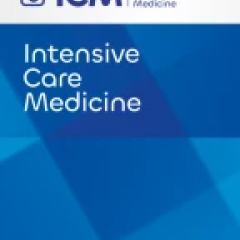The most respected international guidelines for the management of one of the world's leading cause of mortality, sepsis, have been revised to include new recommendations inspired by research from the UQ Centre for Clinical Research.
A consensus committee of 60 multidisciplinary international experts developed the Surviving Sepsis Campaign: International Guidelines for Management of Sepsis and Septic Shock 2021.
Consensus committee member and UQCCR Professor Jason Roberts said in recognition of the practice-changing work led by UQCCR, the new guidelines, published in October, include two important new additions.
“The first of these is a recommendation for the use of prolonged infusion of beta-lactam antibiotics (as opposed to short-duration infusions) for patients with sepsis and septic shock,” Professor Roberts said.
“This recommendation was based, in part, on the large body of evidence provided by the Beta-Lactam Infusion Group (BLING) Program of Research, led by Professor Jeffrey Lipman and myself, which includes the largest randomised controlled trials in this area.
“The ongoing BLING 3 Trial will further knowledge in this area and has enrolled 5700 patients, of the targeted 7000, across more than 100 intensive care units globally”, Professor Roberts said.
“The second addition to the guideline is a best practice statement recommending the use of optimised dosing strategies of antimicrobials, based on accepted pharmacokinetics/pharmacodynamic (PK/PD) principles,” he said.
“It’s based, at least in part, on the evidence described in more than 200 UQCCR research papers. These have been strongly supported by CRE REDUCE, a global collaboration seeking to provide optimised antimicrobial dosing data for critically ill patients.
“There are 17 publications in the updated guidelines authored by Professor Lipman and myself to support these antimicrobial dosing related statements/recommendations, evidencing the important impact of collaborative research.”
The international Surviving Sepsis Campaign (SCC) is a joint initiative of the Society of Critical Care Medicine (SCCM) and the European Society of Intensive Care Medicine (ESICM) who provide guidelines to improve outcomes in critically ill sepsis and septic shock patients.
The Campaign regularly develops and updates evidence-based resources and implementation tools to reduce morbidity and mortality from sepsis and septic shock worldwide.
Since its 2002 inception, the Campaign has published 6 editions of the adult clinical practice guidelines and 1 paediatric clinical practice guideline to aid clinicians caring for patients with sepsis and septic shock.
The Surviving Sepsis Campaign: International Guidelines for Management of Sepsis and Septic Shock 2021 are also published in Critical Care Medicine and Intensive Care Medicine.



